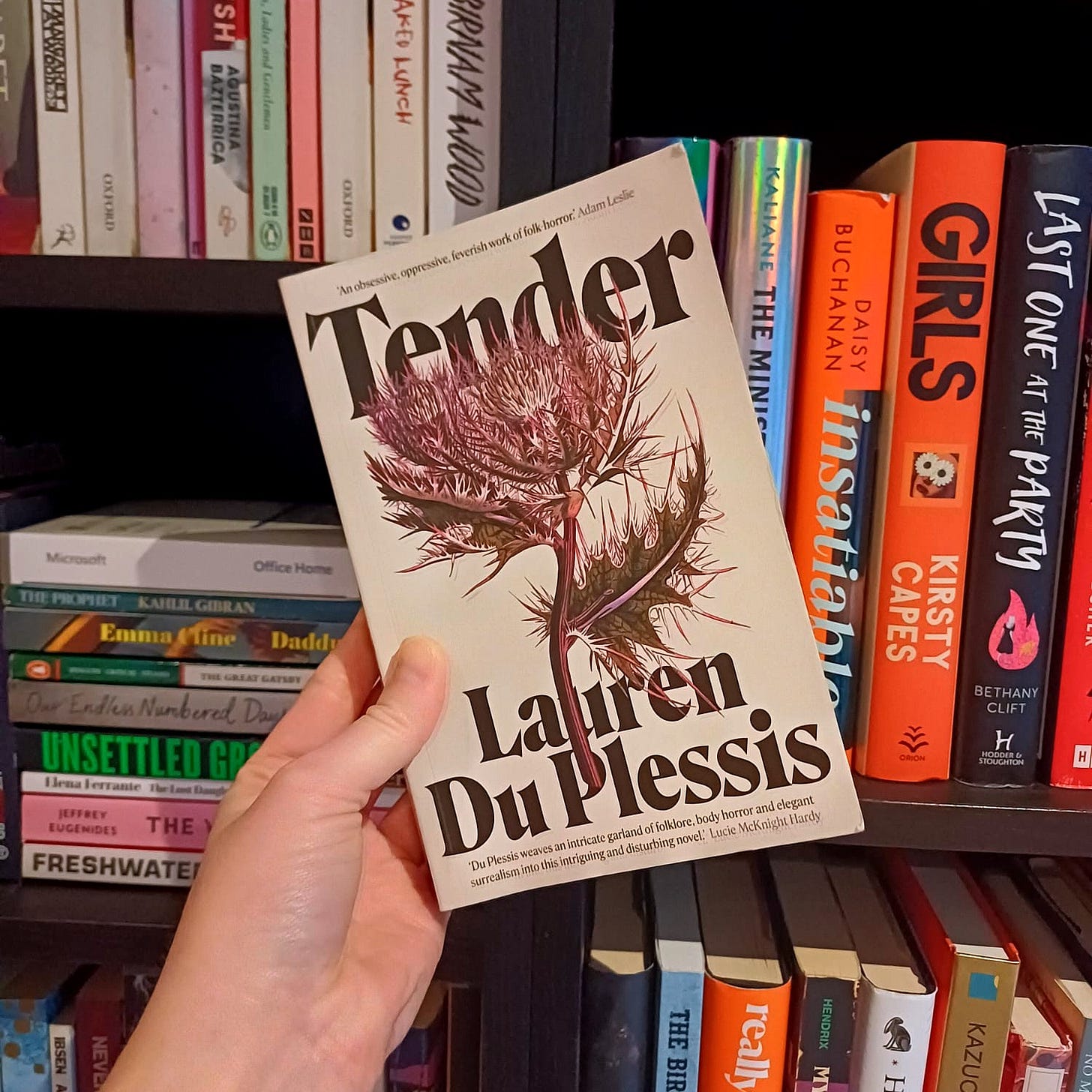What to Expect When You’re Expecting: Copy Edit Edition
The stage where you decide you hate your book
A few days ago, I handed in my copy edit. It took five days to go through the 2273 ‘revisions’ my eagle-eyed copy editor had made.
There were a handful of comments to address too, but these were minor. The relief was immense. I’d anticipated a whole range of problems. An editor seeing through the flimsy science and finding some reason none of it could work – the whole premise undone. Of course, none of this happened. It turns out, if you do the work, it’s likely to pay off down the line. Those hundreds of hours spent writing, carefully researching, drawing from authentic episodes in the drama of my own life – all of it, fine!
Convincing even.
The teacher’s pet in me, once again, rejoiced at hearing my copy editor had said there wasn’t much to do: my manuscript was largely clean. Maybe 2273 revisions sound like the beginning of a horror story: a writer gone mad by the constant, ever-changing, desires of a cursed manuscript. Is it ever enough? Will it ever be done? In reality? They were all commas. OK, most of them. I spent hours accepting commas, punctuating compound nouns and adjectives. Learning the difference between ‘lie’ and ‘lay. SPaG stuff you think you know, but it turns out fall through the net, no matter how many times you re-read the manuscript.
My experience won’t be, and isn’t, everyone’s. In my wonderful debut novelist group (a-rite-of-passage WhatsApp group someone bravely makes, and hope others join), many authors generously shared their copy edit horror stories. Some had grappled with editors making changes to their manuscript that felt incongruous, inferior, counter-intuitive even. Altering the style of their prose, or the flow of their punctuation choices which they didn’t agree with. ‘Stet’ became a kind of war cry – the author’s written defence of their choices made for style over the sometimes-stuffy expectations of the English grammar.
I had to google ‘stet’, which, it turns out, is Latin for ‘let it stand.’ A writer pal said to me that she felt ‘stet’ was overly aggressive, dismissive even, and that a mere ‘I love this – I’d like to keep it,’ would be better. I can see her point, but I guess ‘stet’ is quicker when there’s so much you want to defend. And that’s our right: to defend the prose we’ve spent hours on already, with agents and our editors.
But copy editors aren’t out to get us. They’re doing their job, which isn’t always in-line with our creative ambitions. Knowing when to push back and when to embrace their expertise is the real battle. Those writers in my debut group who managed to ‘save’ the parts they wanted to had courage, and I respect them for not bowing down to the sometimes-intimidating ‘industry expertise’ and knowing it wasn’t what the writing needed.
The comments/changes that didn’t resonate with me were small. I highlighted them, and in my own comment (in track changes) I left an alternative suggestion, or defence, of what was already there for my editor, Harriet. She then read these through and largely agreed with me, which was reassuring. Sometimes your instinct really is right! Go figure.
Now my copy edit is done, there will, once again, be a kind of misty limbic state where I won’t hear anything for a good few months. This doesn’t mean nothing is going on behind the scenes. In fact, the other day I filled in a cover questionnaire (one of the more exciting bits of paperwork a debut meets!). This means some very talented artist is working on my cover, and eventually, I’ll get to see it.
In addition to this, my novel will be typeset ready for printed ARCs (advance reader copies).
In a premature burst of excitement, I purchased a small antique shelf and tidied it up, ready to receive said ARCs, and eventually, the finished copies. Only my books will go on the shelf. I’ve earned this hubristic showpiece, and 2273 revisions are the least of it.
– K x
Screen Saver 🎬
What I'm Watching
Cuckoo (Dir: Tilman Singer, 2024)
Cuckoo. The science fiction horror thriller none of us asked for but we got anyway, serving bird women in trench coats, 1950’s style glamour and one hell of a mating call.
I wanted to watch this for a really long time. The bit in the trailer where the wonderful Hunter Schafer is doing an incredible job of cycling at night, down the middle of the road with headphones on, really whet my appetite. It won’t surprise you that I love horror that features dishevelled witch-like women chasing their unsuspecting victims. Bonus points for a terrifying gait. Cuckoo promised this and more: a trippy, out-of-time setting featuring a so-called ‘health resort’ in the stunning German Alps; an energetic cast keen to prove their chops; a sinister secret, barely contained.
Gretchen, our 17-year-old final girl, is super pissed about having to relocate to the Bavarian paradise her mean father and his new wife and daughter are relocating to. Who wouldn’t be annoyed at that view? The alpine beauty of the Bavarian Alps and mountains as the first thing you see each day? Puke. But there is the fact her mother has just died and she’s grieving. Turns out paradise isn’t enough to filter that trauma out.
Pretty early into the movie, Gretchen is handed a job working reception at the Alpschatten Resort. Purpose is powerful and all that! But her first shift on the job gets weird real quick. Guests throw up in the middle of the gift section, without apology. Her boss, the eccentric Herr König, warns Gretchen not to leave at the end of her shift alone: he will personally collect her at 10 p.m. on the dot. Then there’s the staff Gretchen works alongside, who all look like they have wondered confusedly out of an 80’s sitcom.
In an immediate show of teenage defiance, Gretchen doesn’t lock up and she doesn’t wait for her boss, but cycles home, and is, indeed, perused by the aforementioned Witch Woman of The Alps. I’m being facetious, of course. She isn’t quite a witch, but witch-adjacent (I won’t spoil it for you.)
Gretchen gets in a wonderful amount of scrapes and in her vulnerable state, is tasked alongside a mysterious police office on the hunt, with taking on the threatening secret behind all of this weirdness. Her family are of zero use. In fact, one of them may instead be working against her.
If you love ethereal beauty, bloody faces, fairly unique takes on creature features, then Cuckoo is worth a watch. If you want to feel satisfied by the answers the movie offers at the end, then you might be disappointed. When all was said and done, I felt a little bereft. It’s not like I require a neat, unambiguous ending, hell that’s kind of my speciality, but it fell short of offering something that, trench coats aside, wasn't a little generic.
3 ☆☆☆
Current Reads 📚
Pre-Halloween reads...
My wonderful postman delivered Tender last week, prematurely ahead of the official release, so I had to pause everything to read it.
Tender is a literary folk horror novel, featuring an up-and-coming botanist with a killer manicure who digs up more than ancient history from boggy fenland in Somerset.
Nell, our protagonist, must unearth the long-suppressed truth of her childhood, before she loses herself to the sucking filth of the trenches, where more than bodies wait to be uncovered.
I'd never heard of an archaeobotanist before, let alone how one might read the past through plants. Lauren has clearly done a whole lot of very impressive research into lesser known fields, and did so with such conviction, such gusto, I had to check the author page at the back of the book, to see if she had first-hand experience of 'bog bodies'. She doesn't. She's that good.
If you love a good blend of folklore and body horror, you'll love this tale of one woman's disintegration. It's a transformation story like you've never read before, blazing with sunlight and a whole load of gnarly thistles.
Influx Press are totally killing it at the moment, and Tender is a welcome new addition to the brilliant 'monstrous feminine' canon we're seeing thrive.
As always, my reviews are just that: subjective – none of this is scientific.









Love this peek behind the curtain! I’ve never had something long form copy edited, but when I’ve gone through the process with my short fiction I’ve found it to be quite enjoyable - something really nice about getting all your ts crossed (or, in my case (like yours) your commas sorted!)
So interesting. Thank you for sharing. Couple of months waiting though? It's a long process isn't it. Are you working on book 2 while you wait?